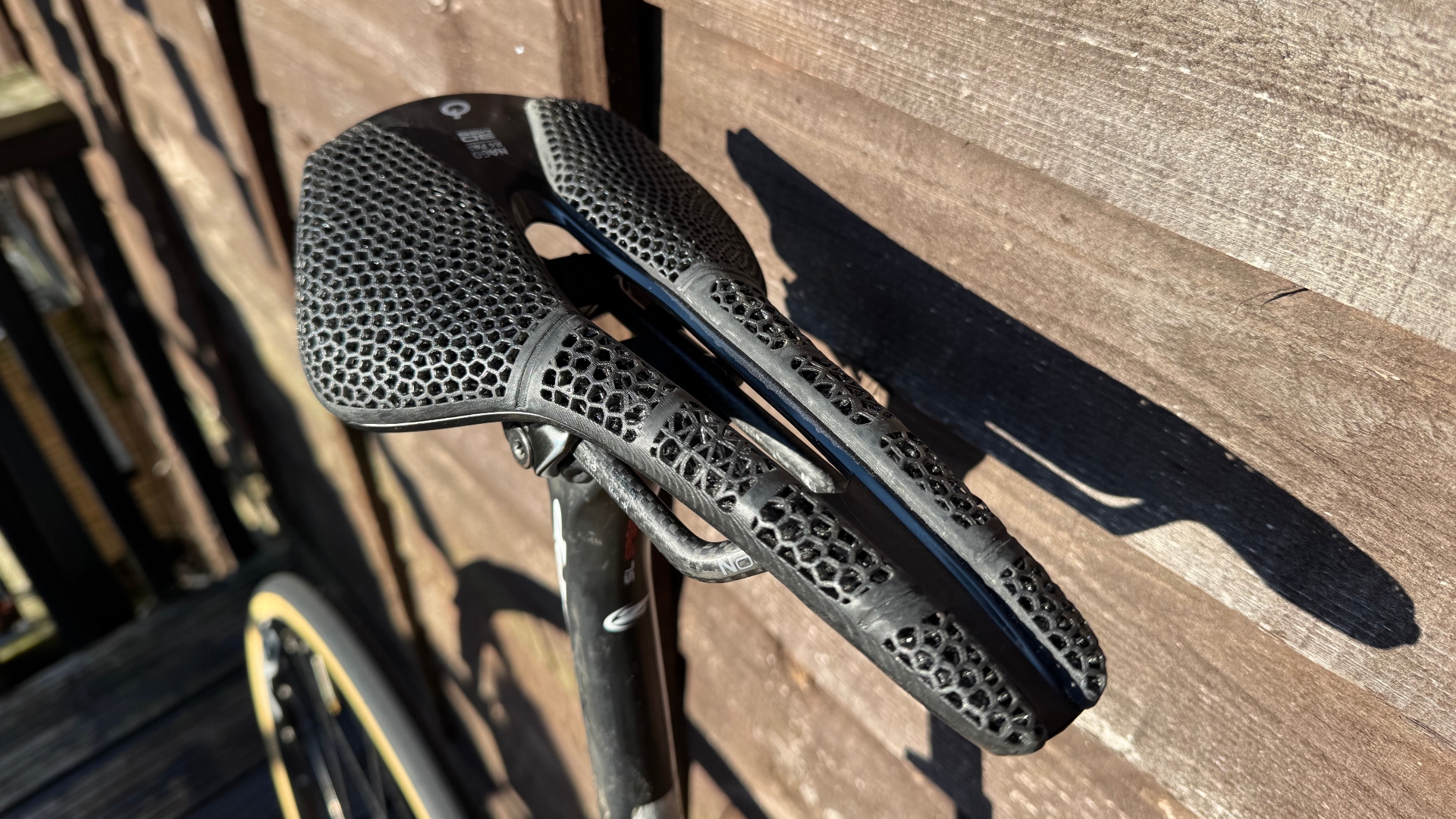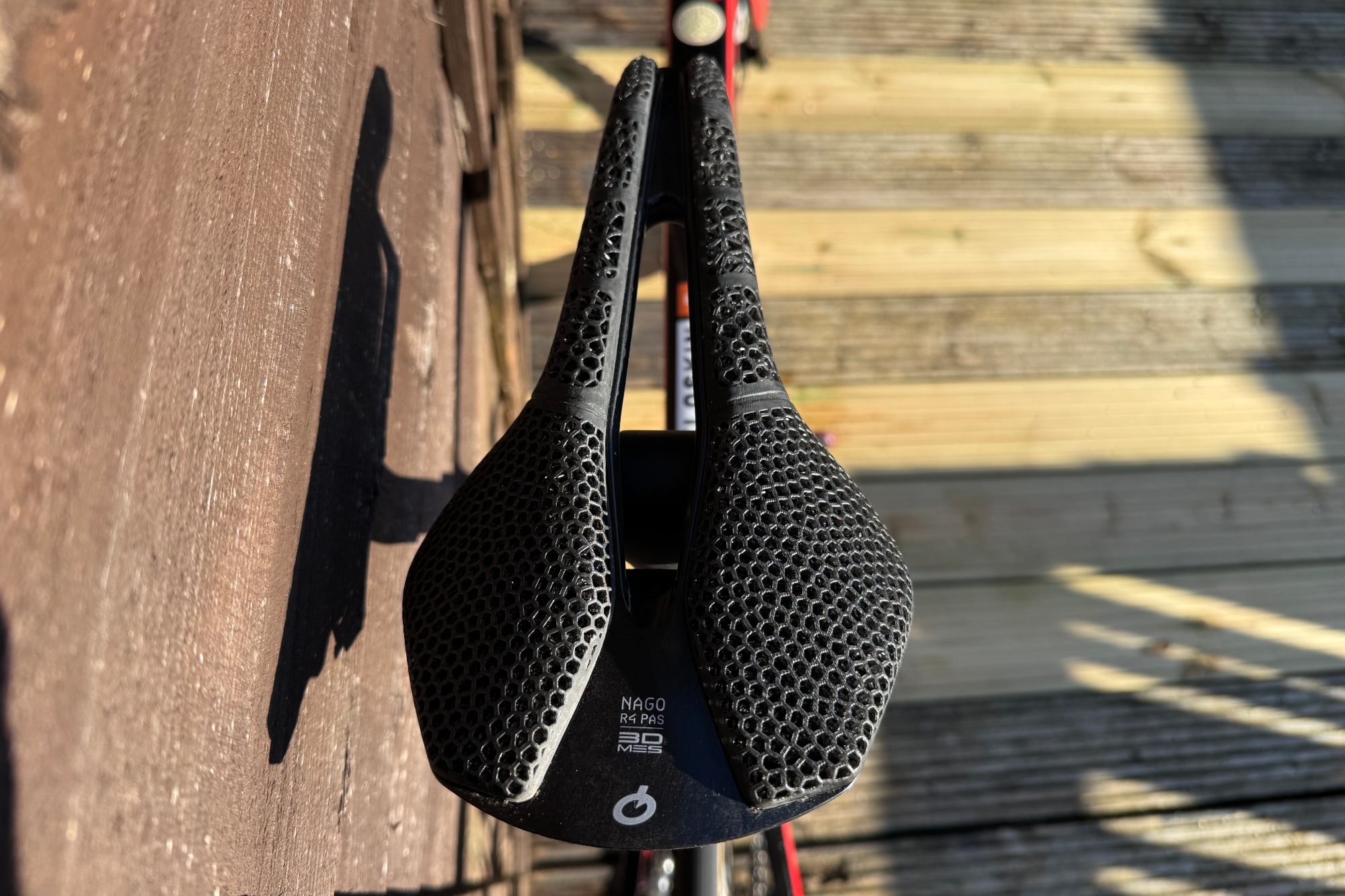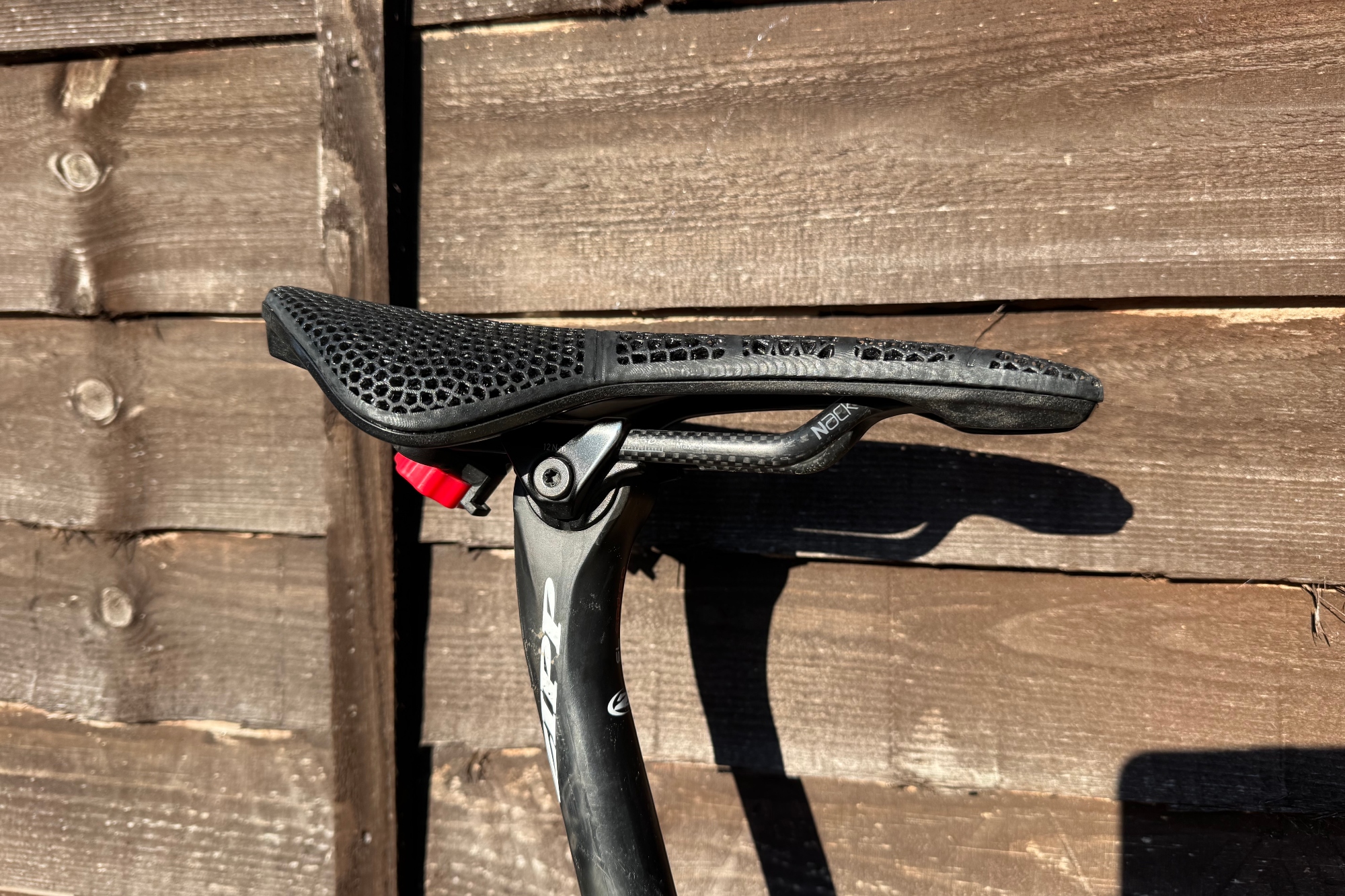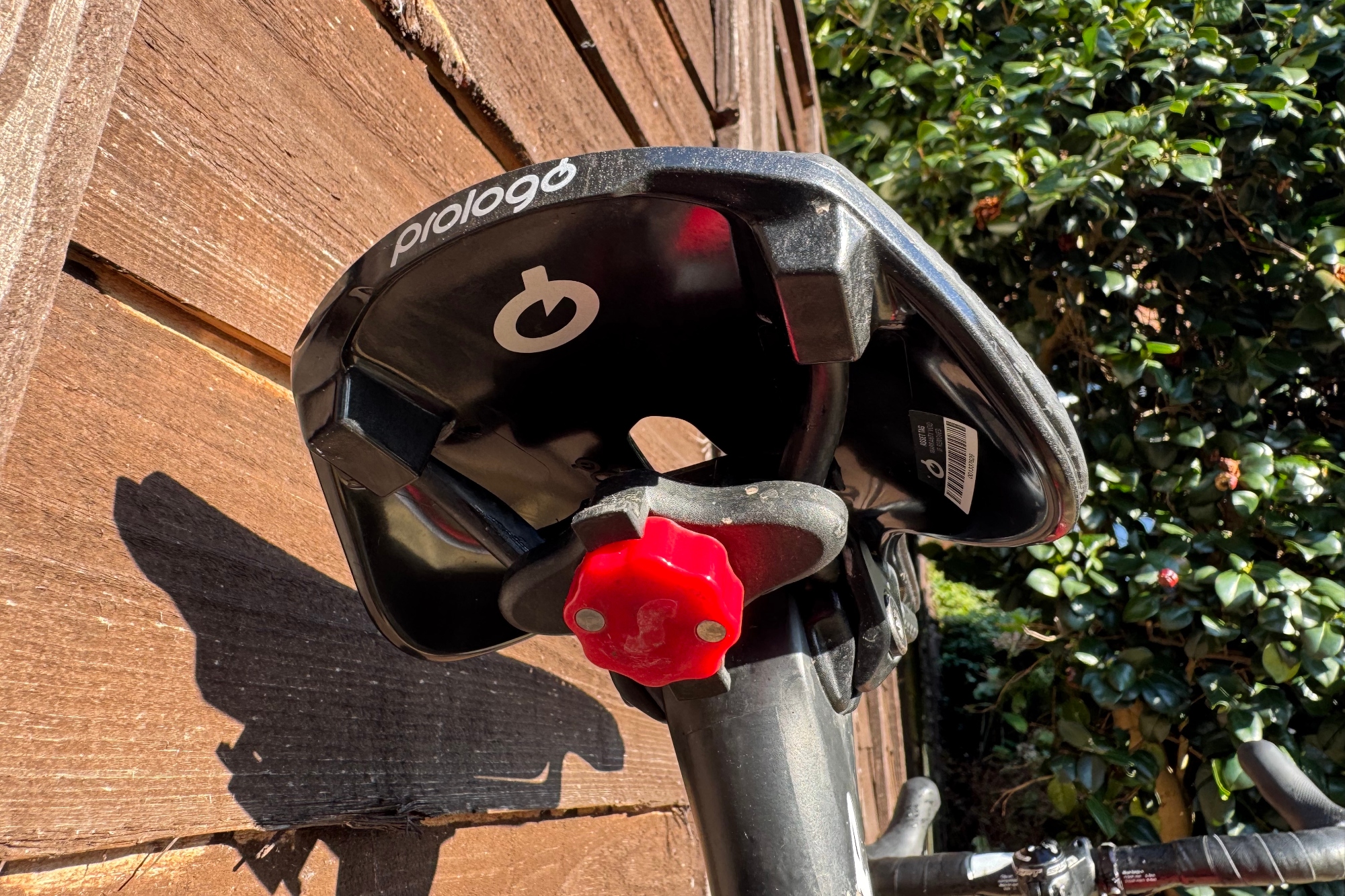
The Nago R4 PAS 3DMSS is the first saddle from Prologo to feature an entirely 3D-printed upper. The saddle was designed using Pressure Map MyOwn tests, Prologo's proprietary system that looked at the various areas where pressure was applied across the saddle by both amateurs and professionals.
Construction
The saddle's 3D-printed top features a structure that's split into five distinct sectors that vary in the level of stiffness and support they provide.
Named MSS (Multi Sector System technology), each section has distinct geometric shapes, varying densities and differentiated elastic coefficients. The rear is high density and has a high elastic coefficient, to provide greater support to the ischial bones (sit bones). The three middle sections are low-density and have a medium elastic coefficient for soft tissue. The front is medium density and has a low elastic coefficient for ‘on the rivet’ riding. There is also a large central cut-out to help relieve pressure on the soft tissue of the perineum.

This 3D printed top is bonded to an injected long-fibre carbon base, with Nack (nano carbon fibre) rails to reduce weight. The resultant weight is a claimed 149g and a measured 153g. With a length of 245mm and a maximum width of 137mm, that makes it one of the lightest 3D-printed saddles available.
The ride
Riding the Prologo Nago R4 PAS 3DMSS saddle, it’s definitely firmer than a lot of 3D printed saddles that I’ve used before, while also featuring more of a curve than a flat top. It takes a little getting used to, especially coming from a more cushioned saddle, but it does have benefits.
For big seated efforts where maximal power transfer is required, the stiffer platform gives a great base for the transfer of watts from trunk to legs to pedals and feels planted. For this style of riding, I’m sitting further back on the saddle, with the wider support area and firmer 3D padding. It works well and still provides plenty of comfort. The 3D padding absorbed impacts from rough roads well and didn’t give me any pressure sore issues, even after consecutive long days in the saddle.

Moving forwards on the saddle the change in padding pressure is noticeable. Towards the centre, the lighter density does help stop soft tissue from suffering excessive pressure from the smaller surface area of the saddle. It’s not a position on the saddle I would adopt for long and I don’t see why many would, but is very useful for when you want to shift around a bit for comfort and change of position. Additionally, it works really well when tucking up into a more aggressive position on the bike, again alleviating pressure from the soft tissue.
I don’t often ride on the rivet, but doing so was potentially more comfortable than on a regular padded saddle or even the crop of stubby-nosed race saddles available now.

Another feature I like is that the front of the saddle is a bit narrower than the Specialized Romin I’m used to riding. I love the Romin, and have used one since 2014, but I do get thigh rubbing on the nose of the saddle, a problem that the narrower Prologo does not give.
Getting the fit just right did take quite a while though. The Prologo sits quite low and has nicely long rails. I found I had to boost the saddle up a fair bit and push it back as well to get the desired fit. Also, those lovely Nack carbon rails are very easy to scuff when clamping and adjusting the saddle. My only genuine gripe with the saddle, the same as for most 3D printed saddles, is that if you ride in filthy weather, the perforated padding is a dirt trap that is near impossible to clean.
Value & Conclusion
Value is an area where this saddle may struggle if bought directly from Prologo's website. I’d say its performance is similar to the S-Works Mirror Romin that I use regularly, but where the Romin is a bit better for longer days in the saddle, the Prologo is better for big power rides. However, the Romin is £350/£450 compared to the Prologo at £420/$420. Selle Italia’s SLR Boost 3D Kit Carbonio Superflow is £409.99/$479.90 and even the Fizik Antares Adaptive 00 is £399.99/$399.99. However, buy the same Prologo Nago R4 PAS 3DMSS saddle from a British retailer and the RRP is substantially lower at £349.99, making it the least expensive of the bunch.
For those who want one of the lightest 3D-printed saddles, the Nago R4 PAS 3DMSS is right up there. The comfort is great and the power transfer superb, thanks to its solid platform. If you shop around you can purchase it for a more reasonable price too.







